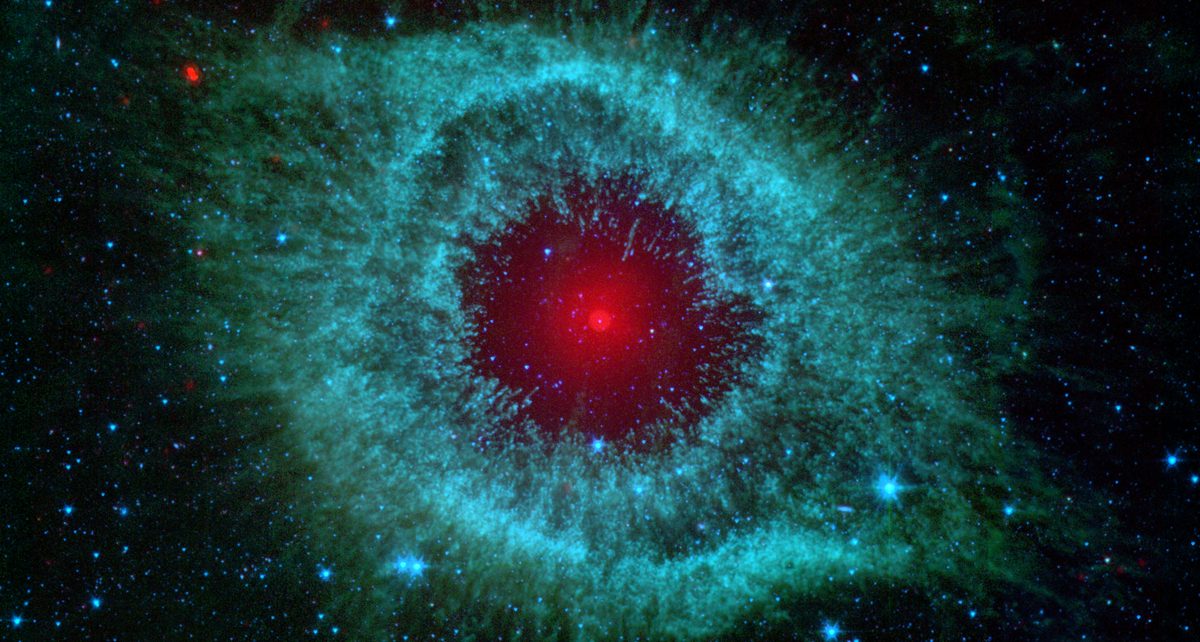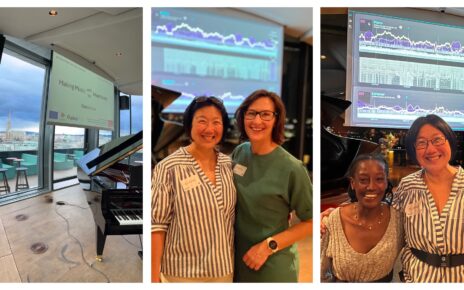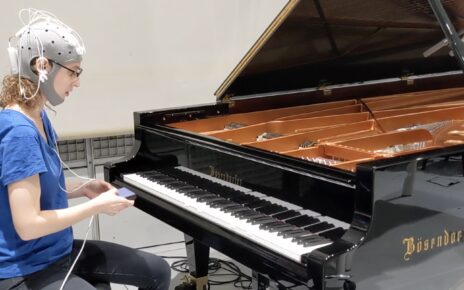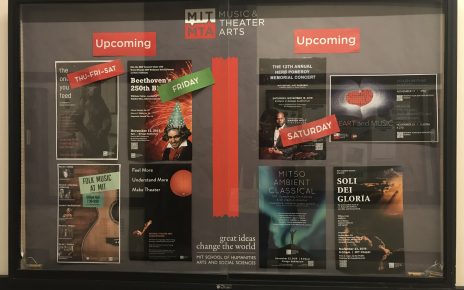This position is now closed.
Job description also at CNRS Job Portal in English and in French. Apply HERE.
Note: applications are solicited in English but instructions are in French; non French speakers may find the DeepL online translater useful.
Title of post
Postdoc (M/F) in the mathematical and computational modeling of musical structures
General information
Reference: UMR9912-ANNVAU-003
Workplace: PARIS 04
Date of publication: Thursday, 4 July 2019
Scientific Responsible name: Elaine Chew
Type of contract: CDD Scientific
Contract period: 12 months with the possibility to renew up to two times for another 12 months each
Expected start date of thesis: 15 October 2019 or later
Proportion of work: Full time
Remuneration: from €2695,56 monthly gross commensurate with experience
Desired level of education: PhD
Experience required: N/A
Missions
Applications are invited for a postdoctoral researcher position as part of the ERC ADG Project COSMOS: Computational Shaping and Modeling of Musical Structures (European Research Council Advanced Grant COSMOS, Principal Investigator Elaine Chew, cosmos.ircam.fr). The work will take place at the Sciences and Technologies of Music and Sound (UMR9912-STMS) Laboratory at IRCAM in the center of Paris.
COSMOS aims to use data science, optimization/data analytics, and citizen science to study musical structures as they are experienced and created in performance, and in unusual sources such as arrhythmic cardiac data.
The research topics will focus on developing mathematical representations and computer tools and interfaces to explore the space of possible interpretations in musical performance through the finding and manipulation of musical structures shaped in performance. Due to similarities between music and cardiac sequences, the techniques developed for characterizing variations in performance will be simultaneously used to study electrocardiographic recordings of abnormal heart rhythms.
The project’s research themes are as follows: i) to find new ways to represent and explore variations in recorded performance and time-varying sequences; ii) to harness volunteer thinking (citizen science) for music performance research by focussing on structures experienced and problem solving; iii) to create sandbox environments to experiment with making performed structures; iv) to create theoretical frameworks to discover the reasoning behind the structures perceived and made; and, v) to foster community engagement by training experts (including retired musicians) to provide feedback on structure solutions so as to increase public understanding of the creative work in music performance.
The candidate will be in charge of developing mathematical models of musical structures such as grouping (chunking), articulation, gestural units, prominence and focal points; computational techniques for abstracting such structures from expressive music performance and electrocardiographic data; devise human-in-the-loop learning strategies for optimizing the automatic analysis methods; participate in the design of interactive interfaces to collect the necessary training data; and, invent ways to optimize the methods for scalability. Responsibilities include coordinating research, planning and carrying out the experiments, writing articles/reports/proposals, and presenting seminars in English.
There exist complementary funding opportunities through the ERC to allow project collaborators to engage more fully in proof of concept activities to turn research outputs into commercially or socially valuable propositions.
Activities
The postdoctoral researcher will be in charge of developing scientific research methodologies for large-scale studies to automatically extract perceived and inherent structures in music performance and cardiac arrhythmia data, and to harness volunteer thinking to interrogate the experience and the creative process of apprehending and manipulating these structures.
The postdoc is expected to contribute to the study and analysis of musical structures in music performance and cardiac arrhythmia data, including MIDI recordings of legendary and newly recorded performances, and anonymized electrocardiographic data. The work will focus on data acquisition and preparation, and transformation of this primary data into musical structures.
Activities will include participating in the development and implementation of scalable computer algorithms and scientific visualizations, optimization of the algorithms and analyses, in-depth investigations into the reasons for the emergence of particular musical structures, conducting/monitoring of citizen science experiments, and publication of individual and/or joint articles on the analytical results and scientific findings.
It is expected that the methods developed and resulting analyses will ultimately make it possible to explore the space of possible musical interpretations, to uncover new forms of expressivity, to provide reasonings for interpretive choices, and change the way people perceive musical performance. Applying the methods to electrocardiographic data will provide novel descriptors and methodologies to characterize and stratify abnormal heart rhythms, with implications for individualized diagnostics and precision medicine.
Skills
The research is strongly interdisciplinary, combining computing, mathematics, and music performance studies, with application to cardiovascular science.
Candidates should hold a doctorate and have an excellent academic background in one or more of the following fields: computer science, mathematical sciences (including operations research and statistics), music technology or a related field. Additional skills in musicology, music performance, music theory, music composition, or bio- or biomedical engineering are highly desirable.
Proven research skills evidenced by a least one publication as the first or second author relating to the subject or activities of the project are required. Strong computer skills are an advantage, including the design, development and use of software, tools and methodologies for scientific calculation or experimentation. Additional skills in data science, optimization, statistics, scientific visualization, machine learning, cardiovascular signal processing or computational music perception and cognition will be appreciated.
Fluency in spoken and written English is a requirement; ability to operate in French is a plus. The post requires sound knowledge of computer programming languages such as Python, Matlab, or C++. A willingness to learn signal processing software and other dedicated languages is also expected. The candidate should be flexible and adaptable, and willing to learn and develop new skills.
Requirements include a high level of competencies in the areas of formulating problems and arguing a case, performing scientific analyses, strong powers of reasoning, and an ability to summarize ideas and provide critical evaluation. Essential skills include abilities to work independently and take initiatives while managing risks, and being accountable for one’s own actions. Candidates must have a positive attitude to working collaboratively in and managing a multi-disciplinary team. Hence, strong communication and organizational skills will be extremely useful.
Work context
The research will be conducted at the UMR 9912 STMS (Sciences and Technologies of Music and Sound), a joint research unit of the CNRS (Centre national de la recherche scientifique), IRCAM (Institut de Recherche Coordination Acoustique/Musique), Sorbonne University, and the French Ministry of Culture. STMS is located at IRCAM (1 place Igor-Stravinsky, 75004 Paris), in the heart of Paris. IRCAM is a world renowned center for contemporary music production; it is organizationally linked to the Pompidou Center.
Facilities include music studios at IRCAM. In addition, researchers have access to IRCAM’s software, computing facilities, recording equipment, and media library, as well as the CNRS and Sorbonne University’s online libraries. As part of the ERC COSMOS project, we are acquiring a reproducing piano that is unique in Europe. The data resources will include MIDI recordings of legendary performances and anonymized electrocardiographic data.
Constraints and risks
Short periods of travel within France and abroad, such as to conferences to present accepted peer-reviewed papers and posters, should be expected. Candidates for this position should be aware that the offices of most of IRCAM’s research teams are in an underground building with a central skylight.
Supplemental information
Applications must include at the minimum a detailed CV; two references (people who may be contacted); a one-page cover letter; the abstract of the doctoral thesis; and, up to three samples of writing such as published articles or thesis reports.
The closing date for sending applications is 1 September 2019. Interviews will take place in the latter half of September 2019. The expected start date is 15 October 2019 or later, depending on whether the candidate is French, European, or from a non-EU country.




